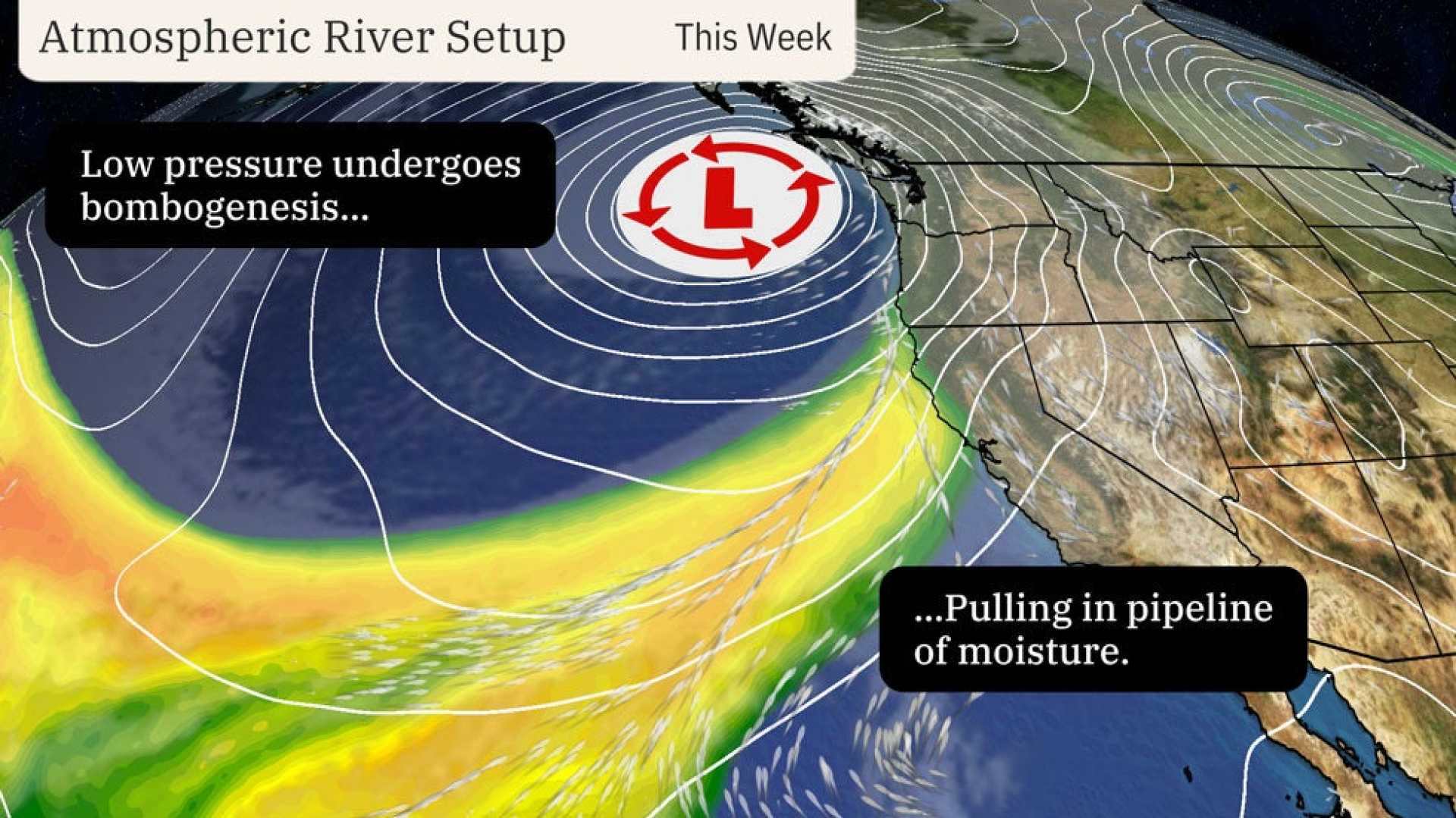News
Bomb Cyclone to Unleash Massive Storms and Flooding on West Coast

A powerful bomb cyclone, associated with a major atmospheric river, is forecast to hit the West Coast of the United States, affecting areas from Washington to California, starting midweek. This intense winter storm is characterized by a rapid drop in atmospheric pressure, known as bombogenesis or explosive cyclogenesis, where the central pressure of the storm drops by at least 24 millibars within 24 hours.
The storm system is expected to bring extreme weather conditions, including hurricane-force winds, torrential rains, and significant snowfall in mountainous regions. California alone is forecast to receive an astonishing 8 trillion gallons of precipitation over the next seven days, while Oregon and Washington are bracing for 5 trillion and 3 trillion gallons, respectively. Idaho is also expected to receive 2.5 trillion gallons of rain.
The combination of the bomb cyclone and the atmospheric river will lead to severe impacts, including coastal erosion and flooding, flash floods, and mudslides in inland areas. Mountain regions are preparing for potentially historic snowfall totals, with snow levels expected to begin around 3,500 feet and the heaviest amounts above 4,000 feet.
Western Washington is under a High Wind Watch, with wind speeds expected to be 25 to 40 miles per hour and gusts up to 65 mph. The National Weather Service has issued a Storm Warning for the waters off the Washington coast, warning of hazardous seas with waves up to 27 feet. This could pose significant risks to sailors and may cause widespread power outages and difficult travel conditions.
Residents in affected areas are advised to stay informed about the rapidly changing weather conditions and to heed all warnings and evacuation orders from local authorities. The unprecedented nature of this storm highlights the increasing frequency and intensity of extreme weather events, which many scientists attribute to climate change.












